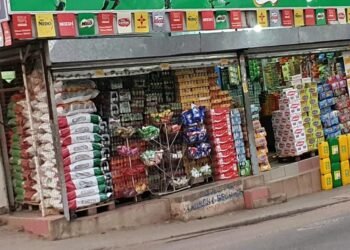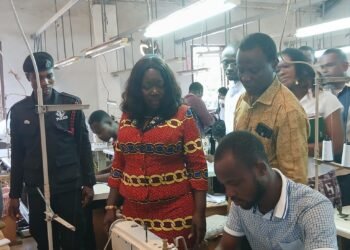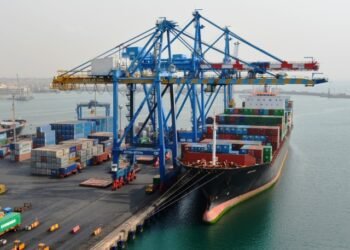Ghanaian businesses have not been spared from the repercussions of the Covid-19 shock. The first round of the Business tracker survey reveals that, many firms could not cope with the Covid-19 shock and the related restrictions imposed by the government and so had to temporarily or permanently close down as a result.
However, findings from the second round of the business tracker survey in comparison with the first wave shows that about 85,000 businesses which were reported to have decided to close down in May/June reduced to about 46,000 businesses in August/September. Then again, across the various sub-sectors of the economy, it was found out that 17,000 out of 30,000 firms had rescinded their decision to close down permanently.
Considering the foregoing, it is evident that, close to half of firms who had considered closing down, were now fully in operation, after the partial lockdown was lifted. Yet, the new findings continue to permeate the idea that, firms do not appear to have recovered from declining sales, disruptions in supply of inputs and access to finance.
Analysis of the decline in firms’ operations

“Placing emphasis on these three streams of business operations, the results show a dip across all three (decline in sales, access to inputs, access to finance)” says Prof. Samuel Kobina Annim, Government Statistician.
Sales figures of firms recorded for months preceding the survey periods (i.e. March-April for wave I and May-June for wave II) show a dip in sales when compared with the same period for 2019. The change in dip for sales on a year-on-year basis for the month of March show a percentage change of 26.01 and that for May, following the period of the lifting of the partial lockdown was a change of 25.76%. However, in June 2020, there was a further decline in sales of about 36%, which is quite surprising, since it is expected that most businesses in June should have seen improvements in their operations.
Concerning cash flow problems that firms were faced with due to the dip in sales, the findings showed an average of 70.0% in May/June as compared to an average of 76.0% in August/September. The various sub-sectors also showed varying results. Trade sub-sector recorded about 16 percentage difference between May/June and August/September.
With respect to difficulties due to access to inputs, firms recorded a percentage change of 6.7 between May/June and August/September. Difficulties in access to inputs across the sub-sectors saw significant variations among the Accommodation and Food sub-sector at a percentage change of 33.9 and the Trade sub-sector also recorded the least percent change of 2.3.
Similarly, businesses reported decline in access to finance by 14.1% in August/September as compared to 25.0% as recorded in May/June. Furthermore, the Agriculture and other industries sub-sector recorded a percentage change of 23.9 between May/June and August/September. The other Services sub-sector varied slightly by 4.6 percentage points.
Perspectives of Firm job losses and wage reduction
From the perspective of firms’ job losses and reduction in payment of wages, an estimated number of 11,986 (0.4%) workers lost their jobs in August/September as compared to that of May/June with 41,952 (1.4%). This indicates that, most firms called back or retained their workers after the partial lockdown period.
Meanwhile, the huge loss of jobs were in the Trade sub-sector which had a big chunk of workers being affected. On the basis of wage reduction, 297,088 (27.5%) of businesses reduced the wages of workers in August/September whiles 770,124 (25.7%) workers had their wages reduced in May/June. Again, most workers (17.5%) in the Trade sub-sector experienced a fall in wages.
Firms’ usage of Mobile and Internet technologies
The survey sought to find out the depth of firms’ use of different technologies to accommodate the impact of the restrictions imposed and the scare of spread the virus had imposed on firms. However, it was observed that the usage of technology was still minimal.
“We still didn’t have the expected engagements with technology from two perspectives”- Prof. Kobina Annim.
Only about an additional 13% of firms had introduced the use of mobile money as a coping strategy to reduce the impact of the Covid-19 on their business operations as compared to that of May/June, jumping from 37.5% to 50. 4%. Regards the use of the internet in business transactions, it was observed that 8.0% had adopted the use of the internet in wave II as compared to just 9.0% in wave I. This indicates that only a few firms are exploring the advantages of the internet use for business in this era.
“The findings indicate that there have been some improvements, but Ghanaian businesses continue to be affected by the pandemic in various ways. Through our current initiatives to support businesses, we will continue to work with all partners to support government’s efforts to help businesses to fully recover from the pandemic.”- Silke Hollander, Deputy Resident Representative of UNDP, Ghana.
The Ghana Statistical Service (GSS), in collaboration with the United Nations Development Programme (UNDP) and the World Bank launched the second wave of the COVID-19 Business tracker survey to serve as a follow-up assessment of firm performance in this crisis era.























